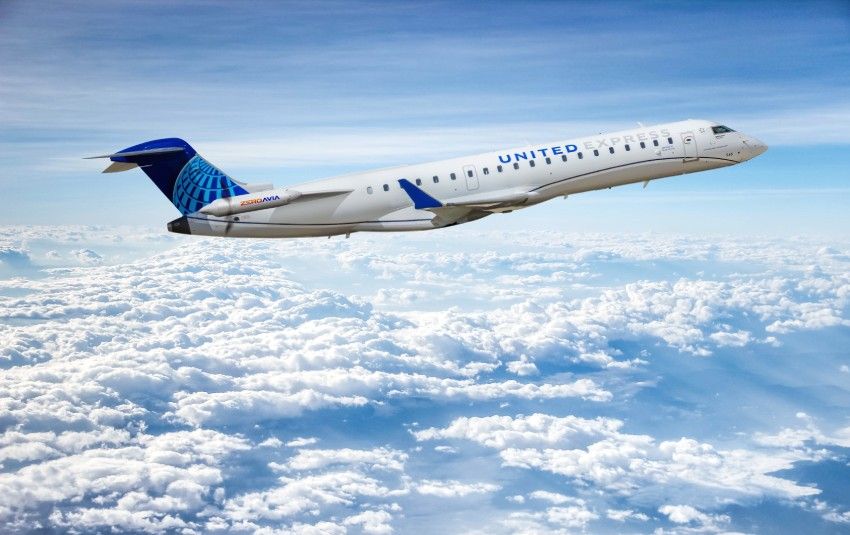United Airlines reaffirms its commitment to its zero-emissions strategy with its latest investment in hydrogen-electric engines for regional aircrafts. Hydrogen-electric engine developer ZeroAvia has raised an additional $35 million, with United Airlines and Alaska Air Group as its new investors. The new funds bring the company’s total investment to date to $115 million.
The investment is part of the carrier’s vision to cut greenhouse gas emissions by 100 per cent by 2050, without relying on carbon offsets. United expects to buy up to 100 new zero-emission, hydrogen-electric engines (ZA2000-RJ). The engine could be retrofit to existing United Express aircraft as early as 2028.
One potential use is on the CRJ-550, the only 50-seat aircraft which offers first class and other premium amenities.
“Hydrogen-electric engines are one of the most promising paths to zero-emission air travel for smaller aircraft, and this investment will keep United out in front on this important emerging technology,” said Scott Kirby, chief executive of United.
“United continues to look for opportunities to not only advance our own sustainability initiatives but also identify and help technologies and solutions that the entire industry can adopt.”
Hydrogen-electric engines use electricity created by a chemical reaction in a fuel cell to power an electric motor instead of burning fossil fuel. Because no fuel is burned, there are no climate-harming emissions or carbon released into the atmosphere when the engines are operated.
The ZA2000-RJ is expected to be used in pairs as a new power source for existing regional aircraft.
Under the agreement with United Airlines Ventures, United will pursue a conditional purchase agreement for 50 ZeroAvia ZA2000-RJ engines, with an option for 50 more, enough for up to 50 twin-engine aircraft which would be operated by United Express partners once they are fully developed and certified by regulators as soon as 2028.
ZeroAvia is accelerating development of its ZA2000 engine and will soon begin ground tests of its ZA600 in a 19-seat aircraft, with the aim of entering commercial service with this smaller engine by 2024.


